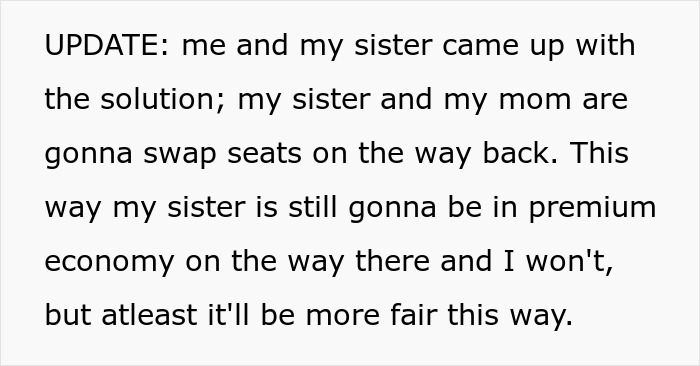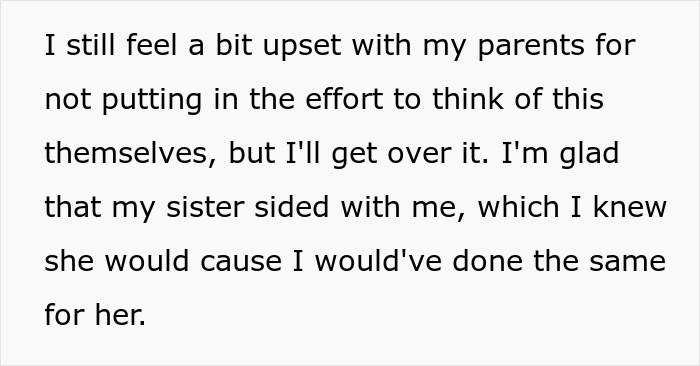Sometimes, the real turbulence happens before takeoff.
As this teen packed for a trip with her parents and younger sister, she found out she’d be the only one flying economy. The rest of the family had been upgraded to business class—but by the time they got to her, the miles had run out.
She brought it up, tensions rose, and eventually, she turned to Reddit. Reactions were all over the place: some supported her frustration, others said she was lucky to be going at all.
Where do you stand?
As this teen packed for a vacation with her family, she discovered she was the only one flying economy

Image credits: shotprime/Envato (not the actual photo)
Her parents and sister had secured business class seats, and she wasn’t happy about it
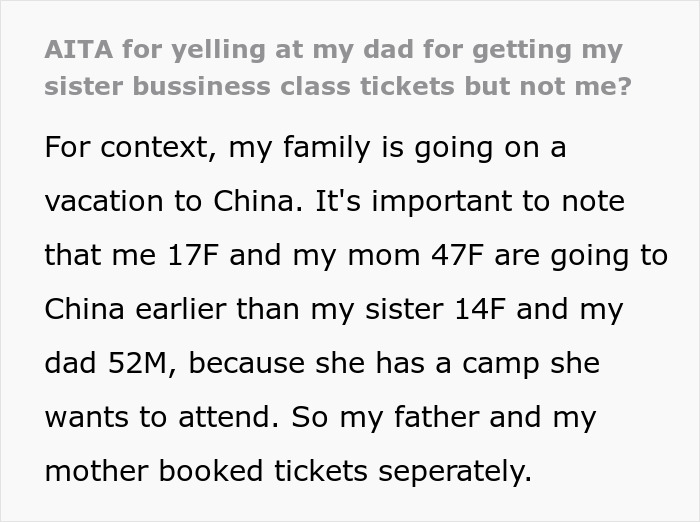
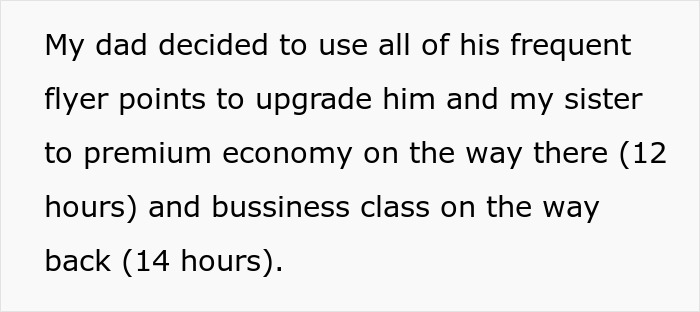


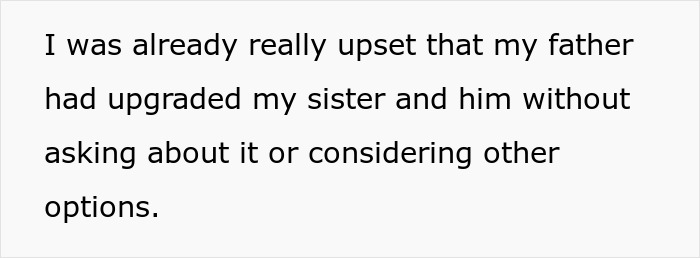

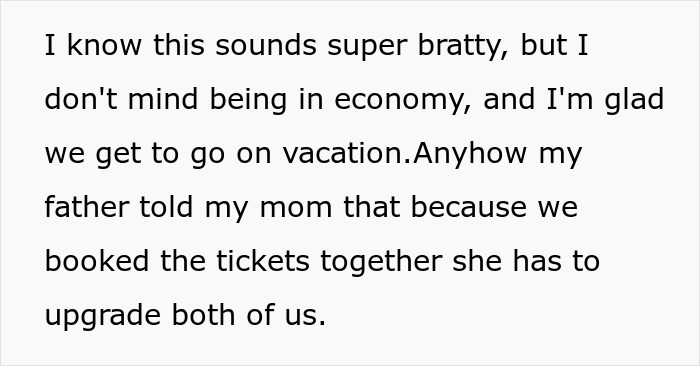

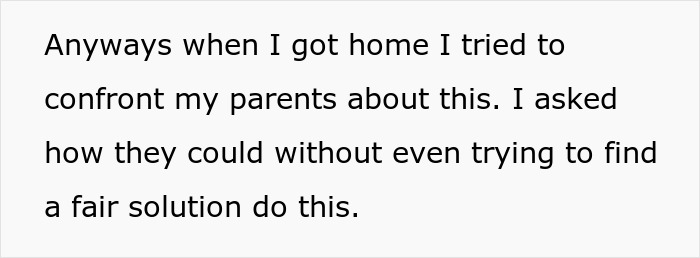
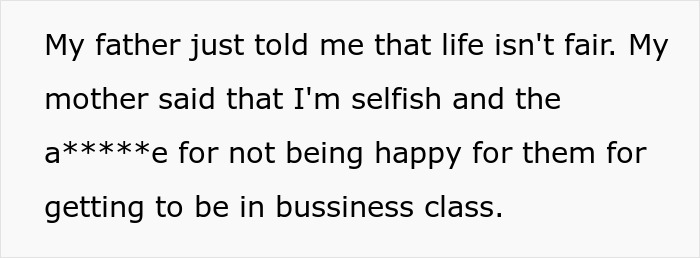
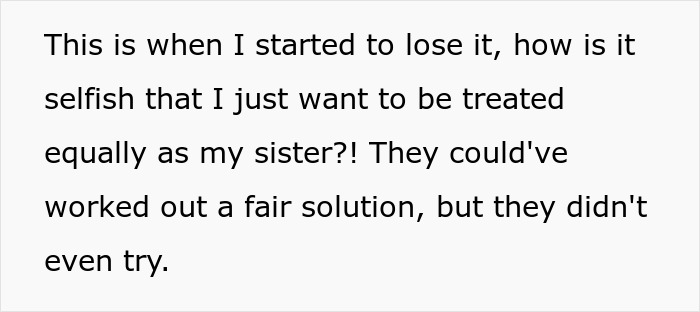

Image credits: Zinkevych_D/Envato (not the actual photo)

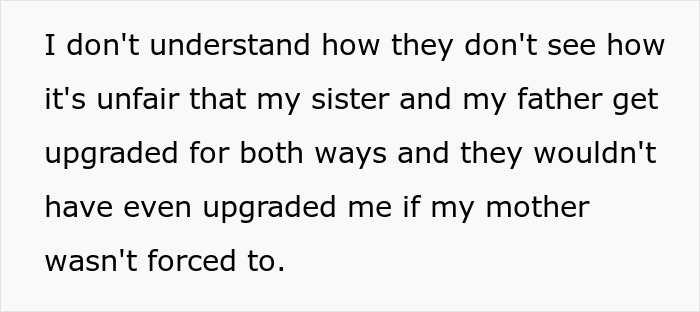
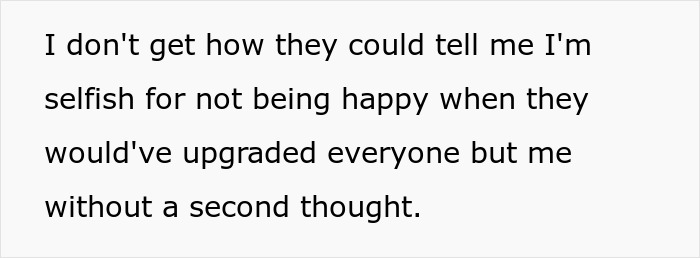
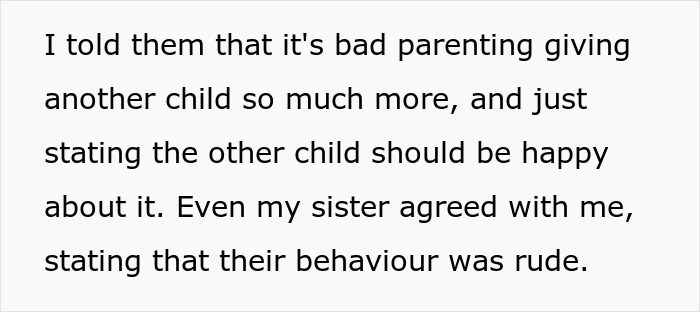
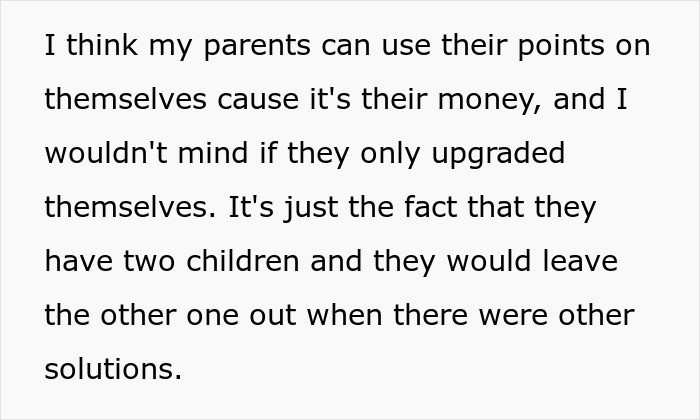

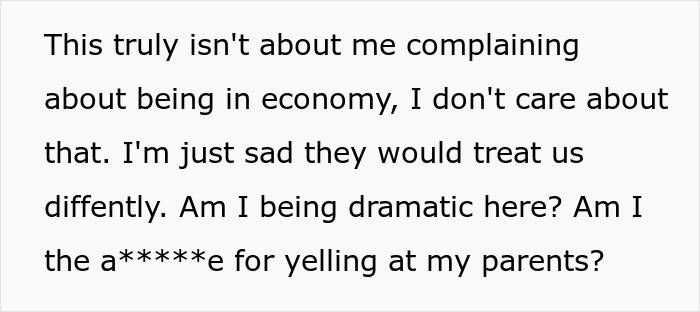




Image credits: laddawanpunna/Envato (not the actual photo)
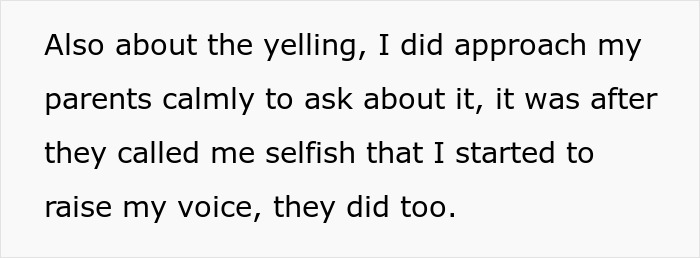
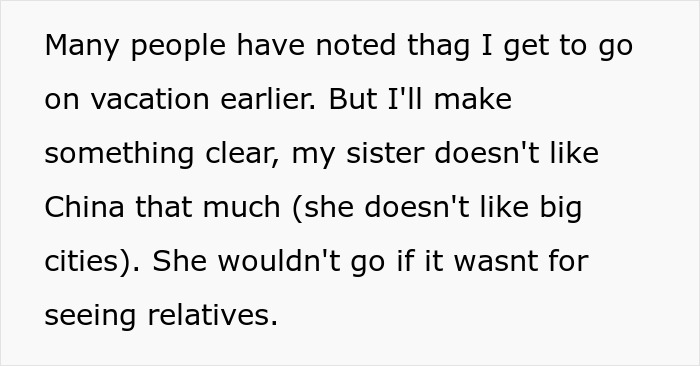
Image credits: noonewilleverknoww
“Connection should always be a parent’s top priority,” says expert
Parenting is no small task.
It requires emotional, physical, and financial resources—and often, a lot of patience. So it’s only natural that many parents want their efforts to be recognized, especially when they go out of their way to provide things like vacations or special experiences.
But according to a poll by C.S. Mott Children’s Hospital in Michigan, 81% of parents believe that kids today “are not grateful for what they have.”
That’s a pretty harsh statistic. Sure, parents work hard to give their children opportunities and privileges, but are teens really that ungrateful? And more importantly, is constantly blaming them going to help? What kind of message are we sending if our only response is, “Life isn’t fair”?
To understand the emotional weight behind moments like these, Bored Panda reached out to teen wellbeing coach Camila Piombini, who shared insights on how these situations can affect young people and how parents can handle them better.
“Saying ‘life isn’t fair’ usually has one aim: to shut the conversation down,” Piombini told us. “Even if nothing could have been done about the situation—if the miles had run out and there was nothing they could do—what teens really need in those moments are empathy and emotional connection.”

Image credits: Zinkevych_D/Envato (not the actual photo)
She explained that most of us can remember being teenagers and getting a lecture from a parent or teacher.
“Most of these went in one ear and out the other, because all we heard was, ‘what you think doesn’t matter.’”
A better response, Piombini suggested, would be:
“I get why you’re upset, and it does feel unfair. I wish we could have done it differently. Can we talk about how to make this better next time?”
This kind of reply validates the teen’s feelings, opens up a conversation, and lets them feel heard and respected—basic emotional needs that, when met, build lasting trust.
Even if something like a plane seat seems trivial in the big picture, Piombini reminds us that teen brains are still developing, particularly in areas that manage emotion. That means their reactions can be intense when they feel mistreated by people they love.
When these types of dismissals become a pattern, they can leave lasting marks.
“In the short term, this might show up as anger bursts, withdrawal, anxiety, or low mood. These will be stemming from deeper feelings of ‘I’m not enough’ or ‘I don’t matter,’” she said.
Over time, constant invalidation can chip away at a teen’s already-fragile self-esteem. Later in life, this might show up as trouble setting boundaries, fear of not belonging, or difficulty trusting people in close relationships.

Image credits: imagesourcecurated/Envato (not the actual photo)
Unfortunately, many parents underestimate the weight their words can carry. And for some, that harm isn’t even clear until years later, when their now-adult child brings up past hurt, only to be met with denial or confusion.
But the truth is, even offhand remarks can leave lasting scars.
“Teens are more emotionally perceptive than we think,” Piombini said. “They are paying attention, even if they don’t always show it.”
So what should parents do instead? Piombini recommends tuning in with curiosity instead of criticism.
“One great conversation starter for parents when they notice a change in their teen’s mood or behavior is, ‘I’ve noticed you’ve been spending a lot of time in your room / getting angry lately / [insert behavior here]. What’s up?’”
“And then really listen to their response. No lecture, no need to fix it. Just holding space for their feelings. After this, they can collaboratively work on solutions or changes that will address both the parent’s and the teen’s needs.”
Because at the end of the day, as Piombini puts it:
“Connection should always be a parent’s top priority. It’s the one thing that builds lasting trust.”
Some readers felt the teen was acting completely ungrateful

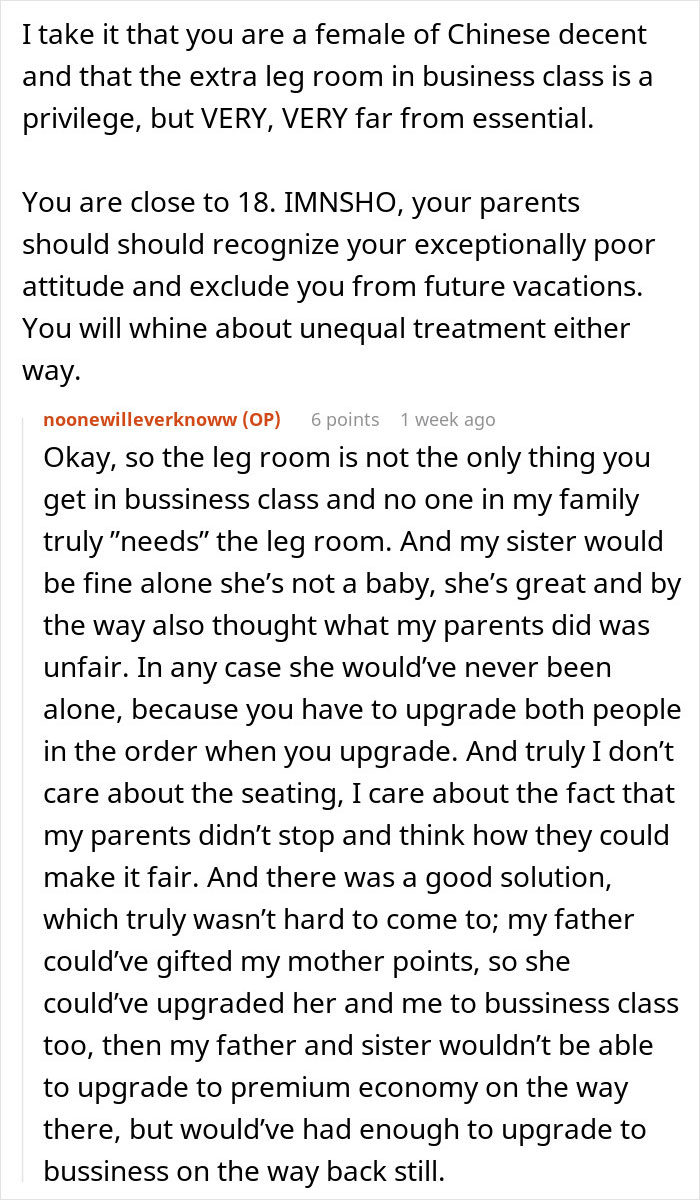
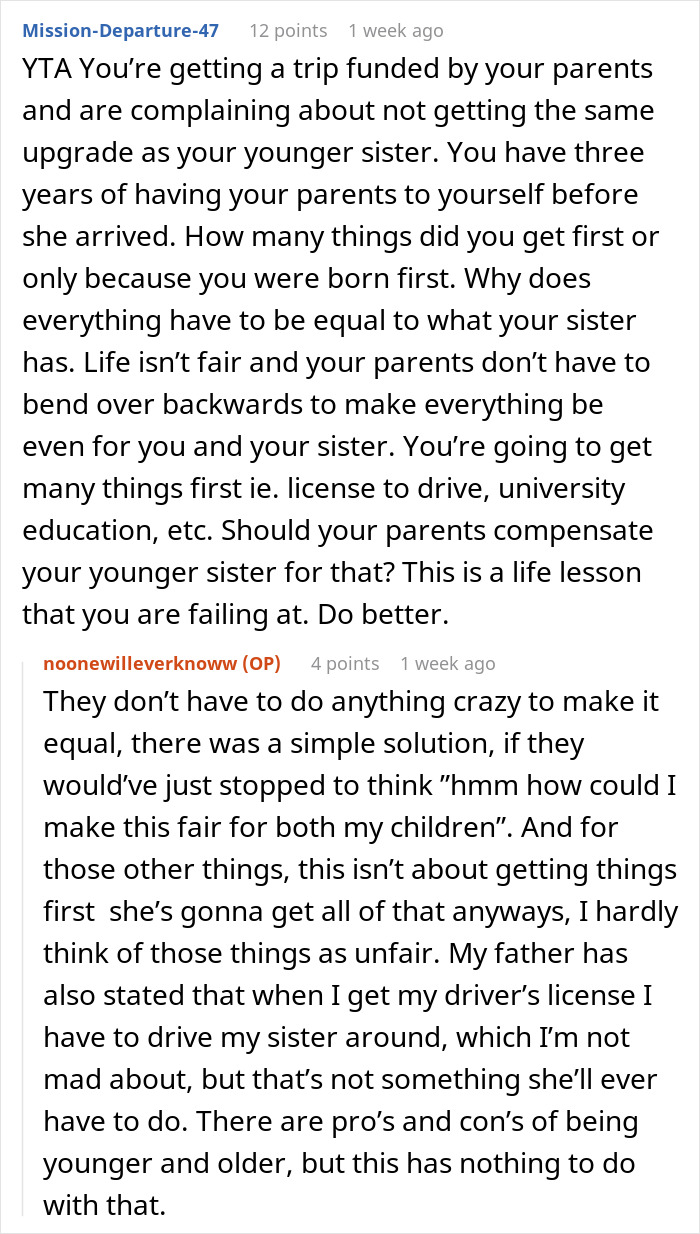
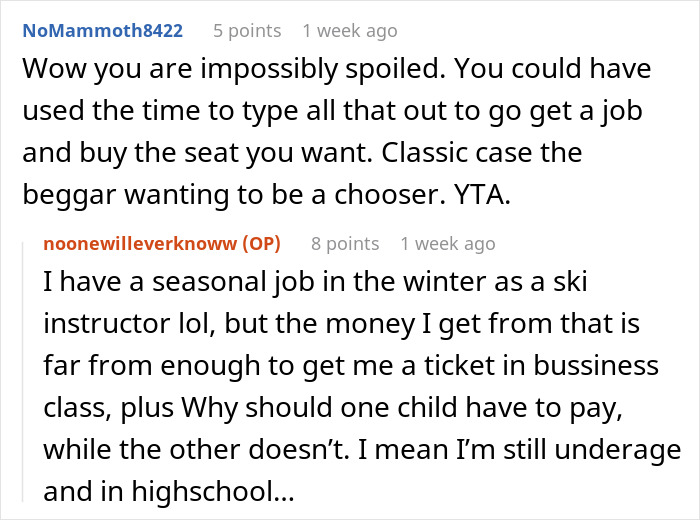


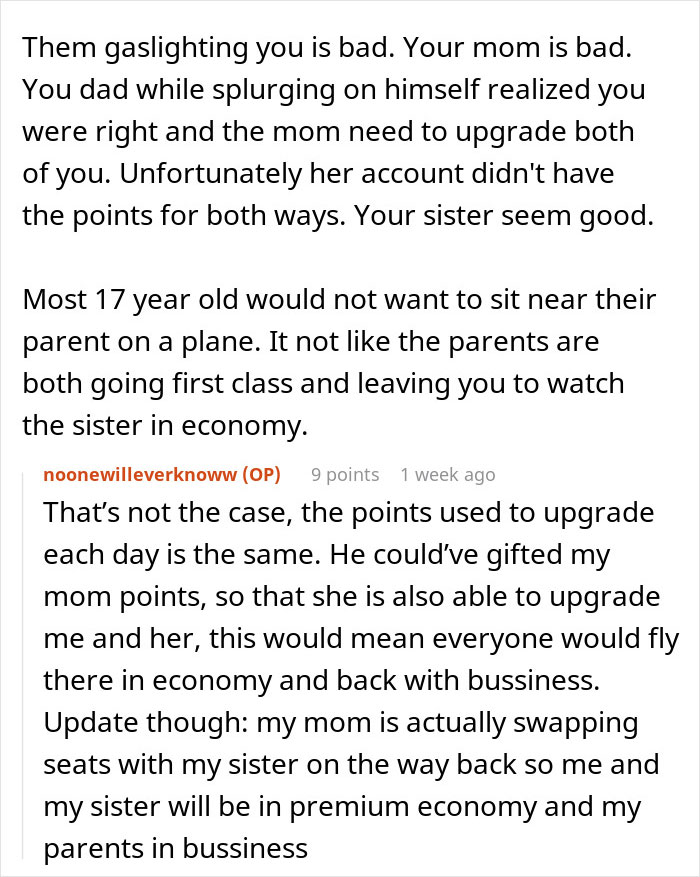


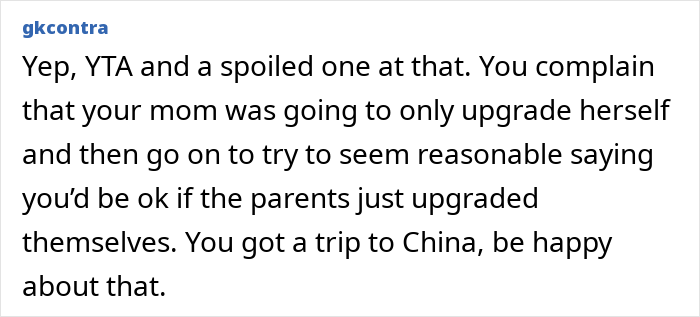
Others thought everyone involved could’ve handled things better
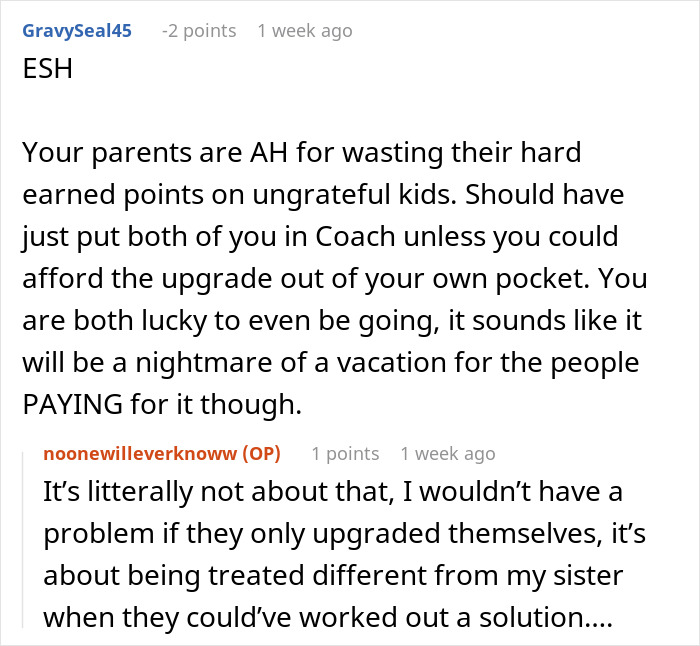
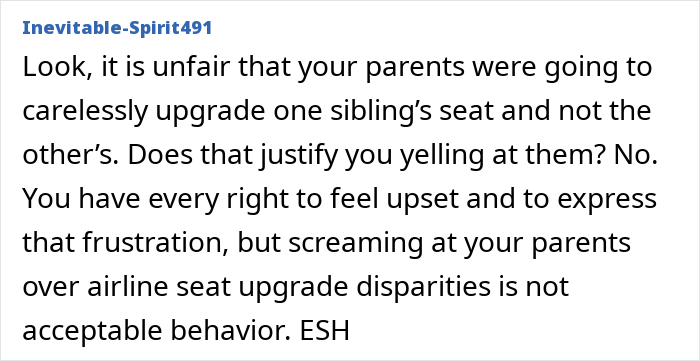

But many agreed she had every right to feel hurt by the unfair treatment

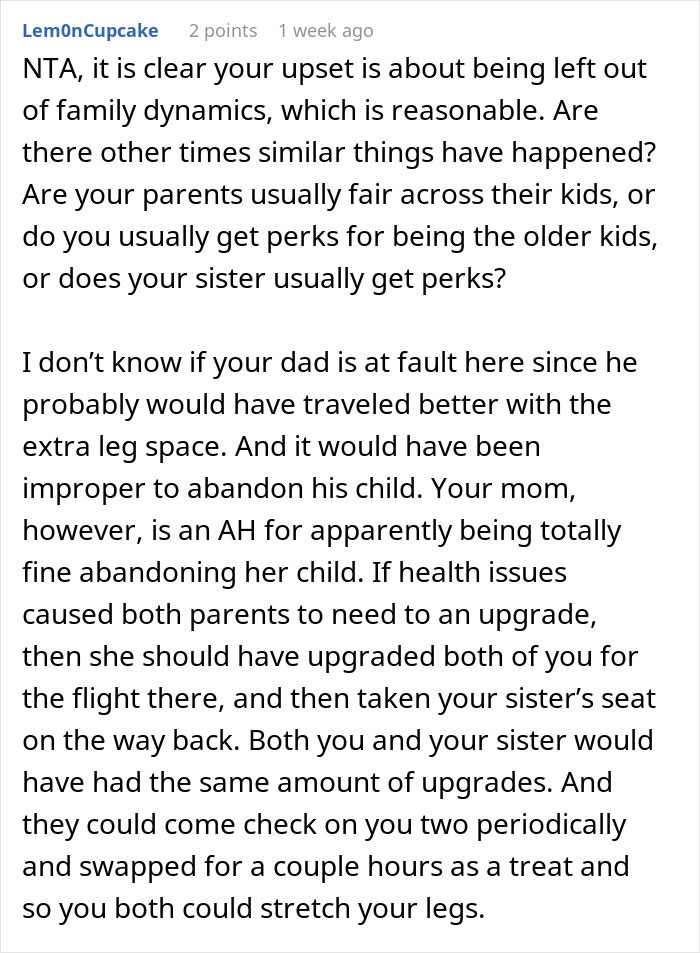
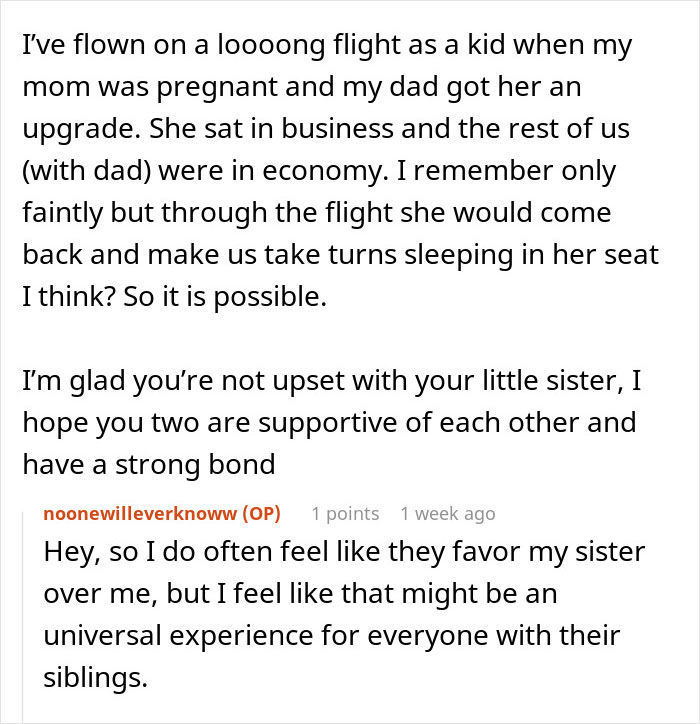
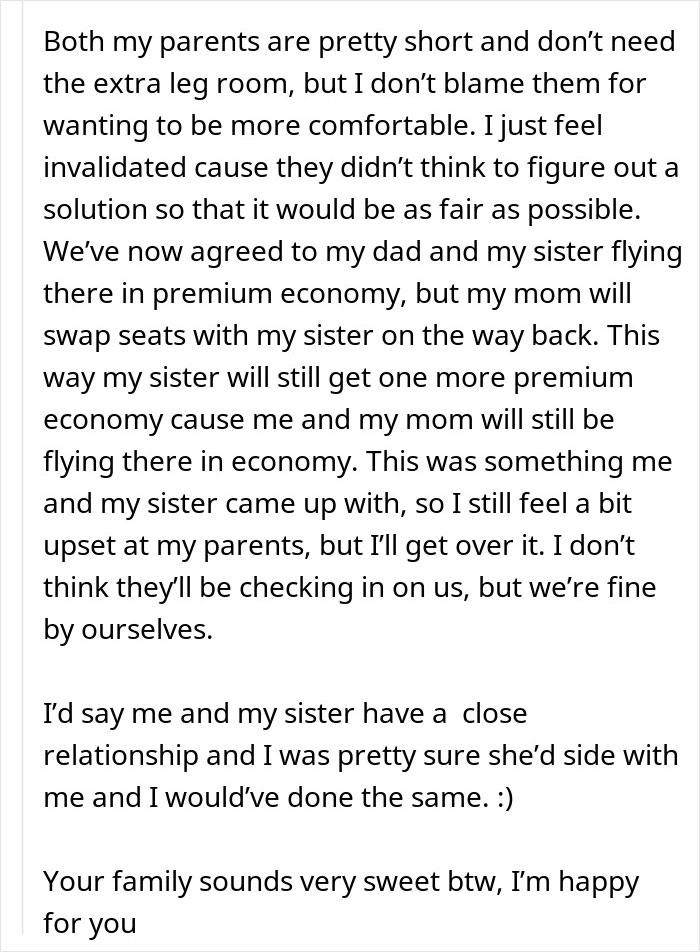

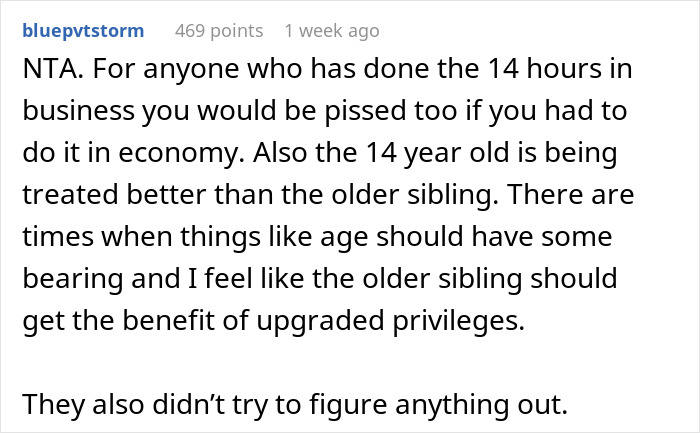
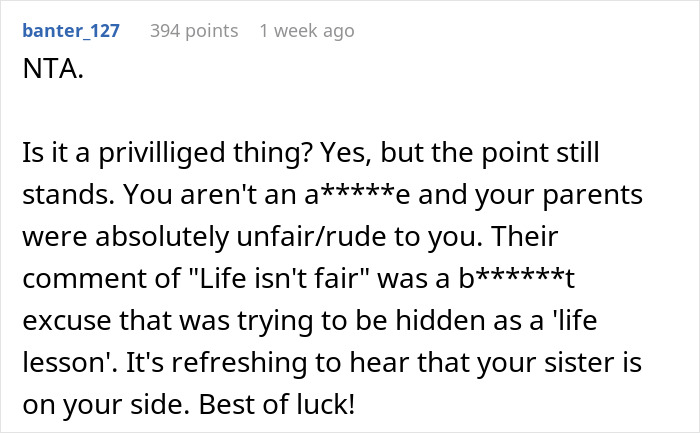

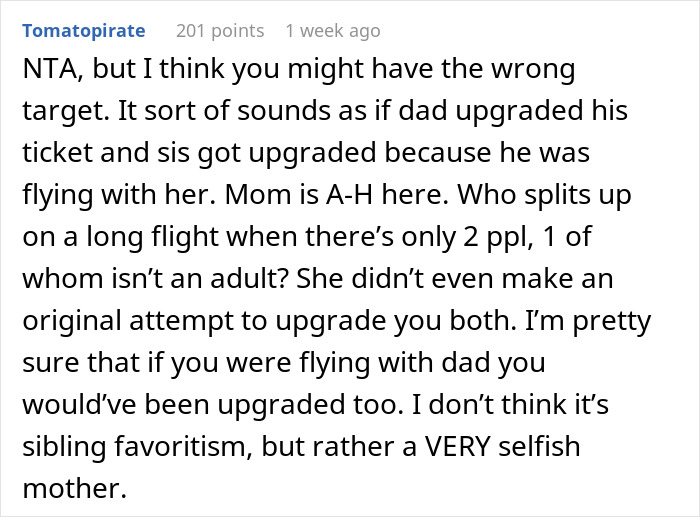
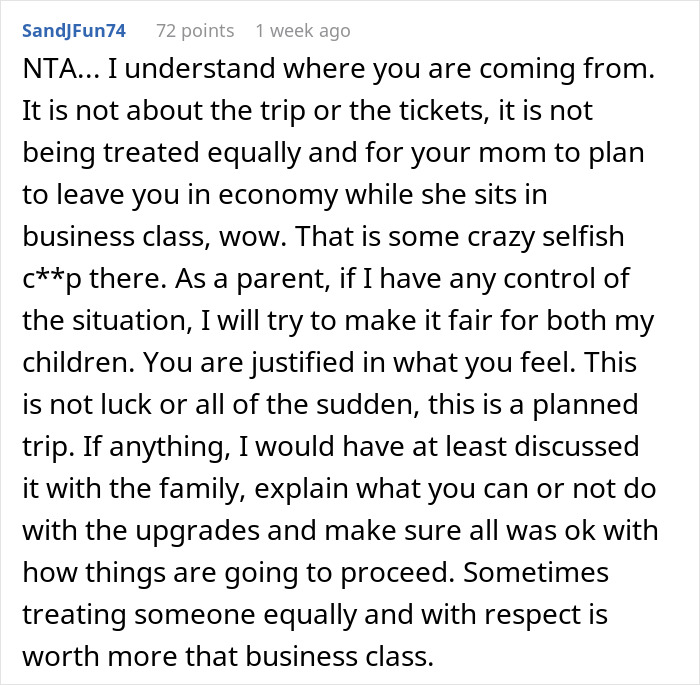
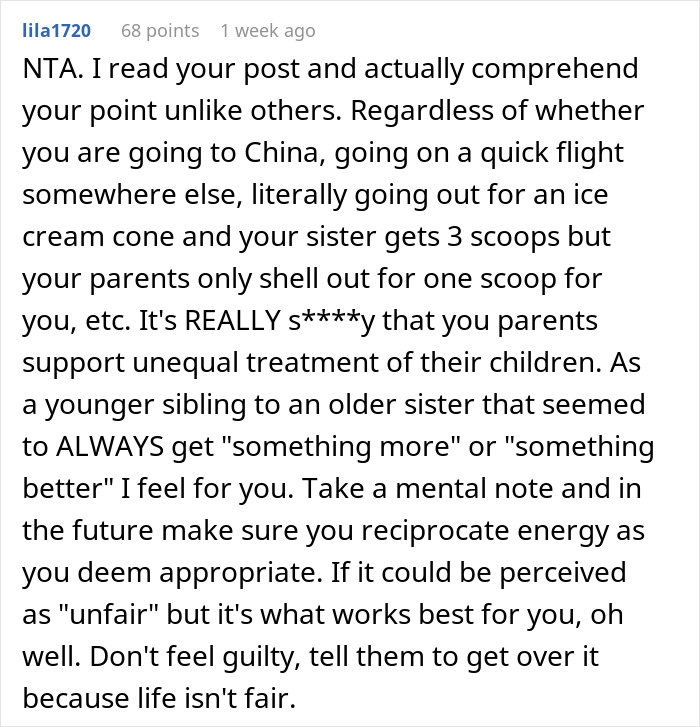

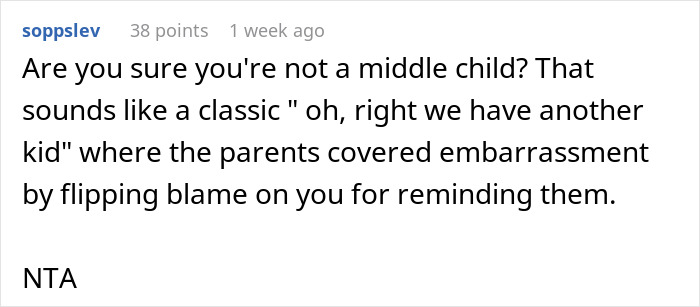
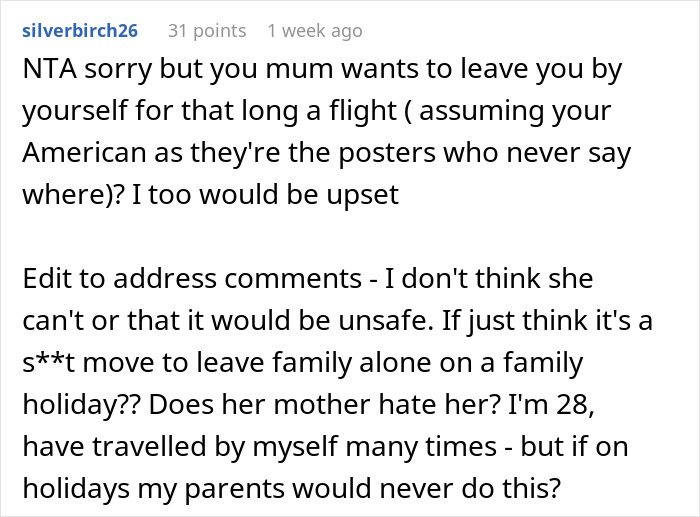

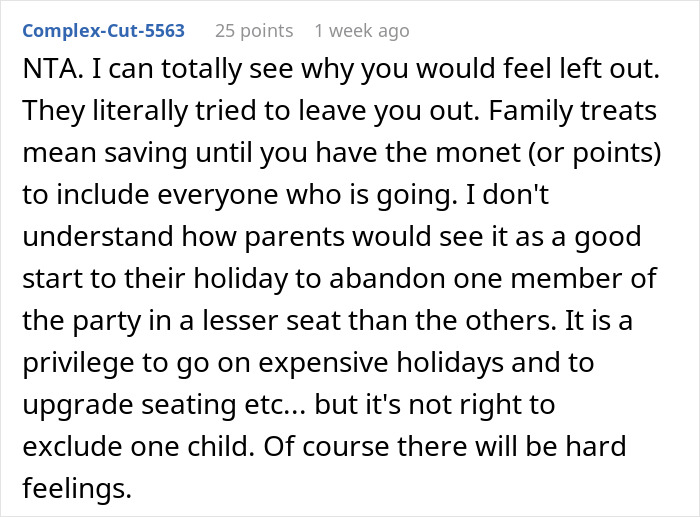
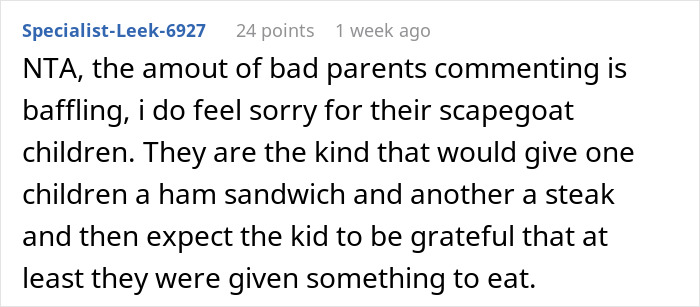
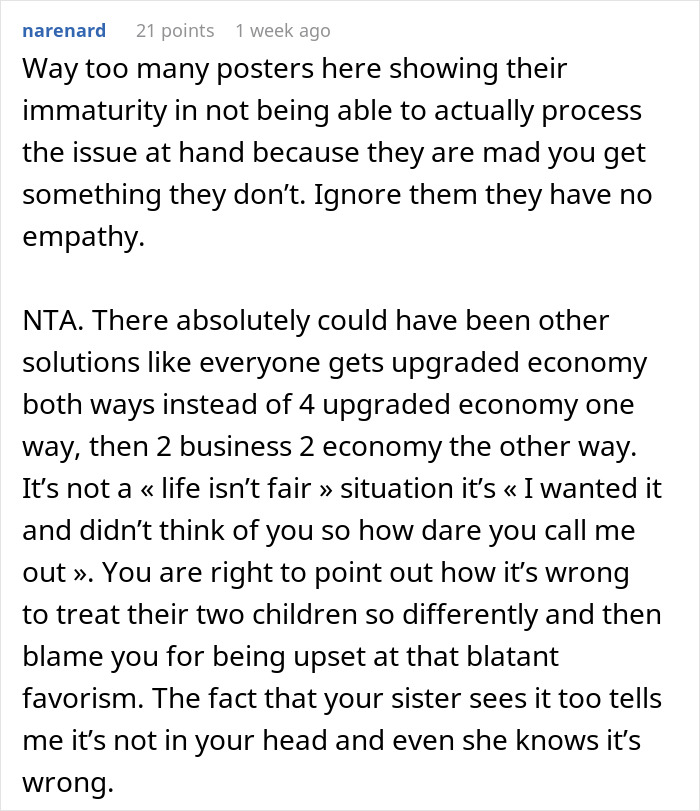
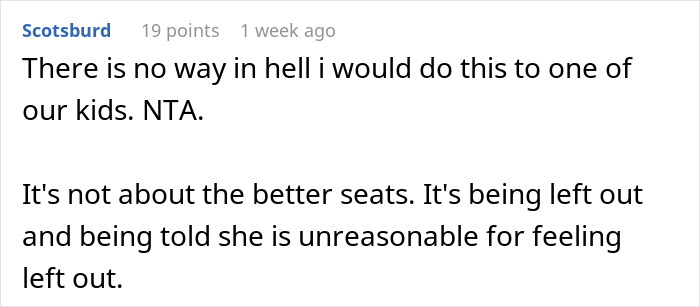

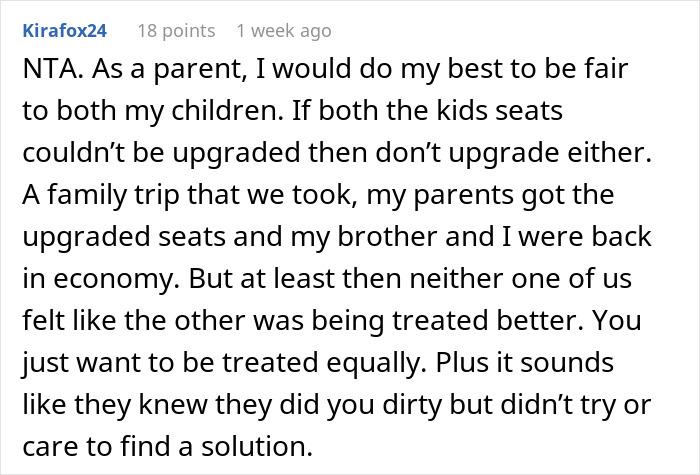
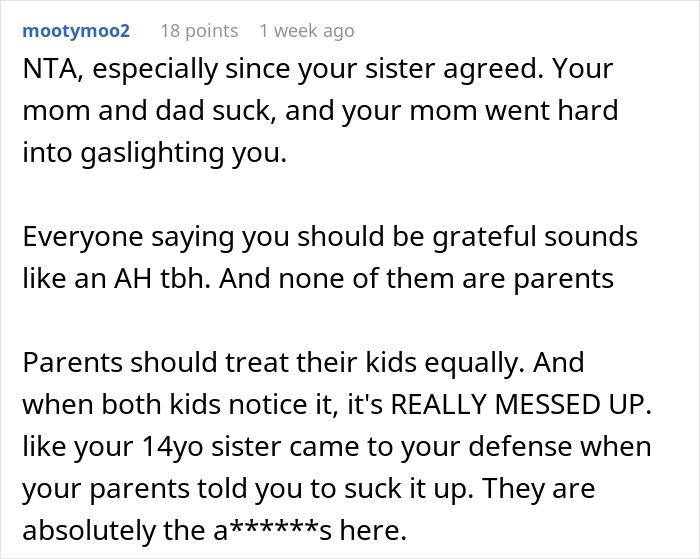
Thankfully, she later revealed in an update that they were able to find a solutionFamily vacation
